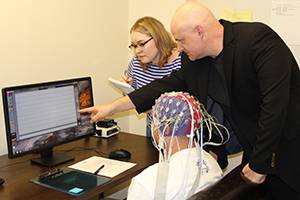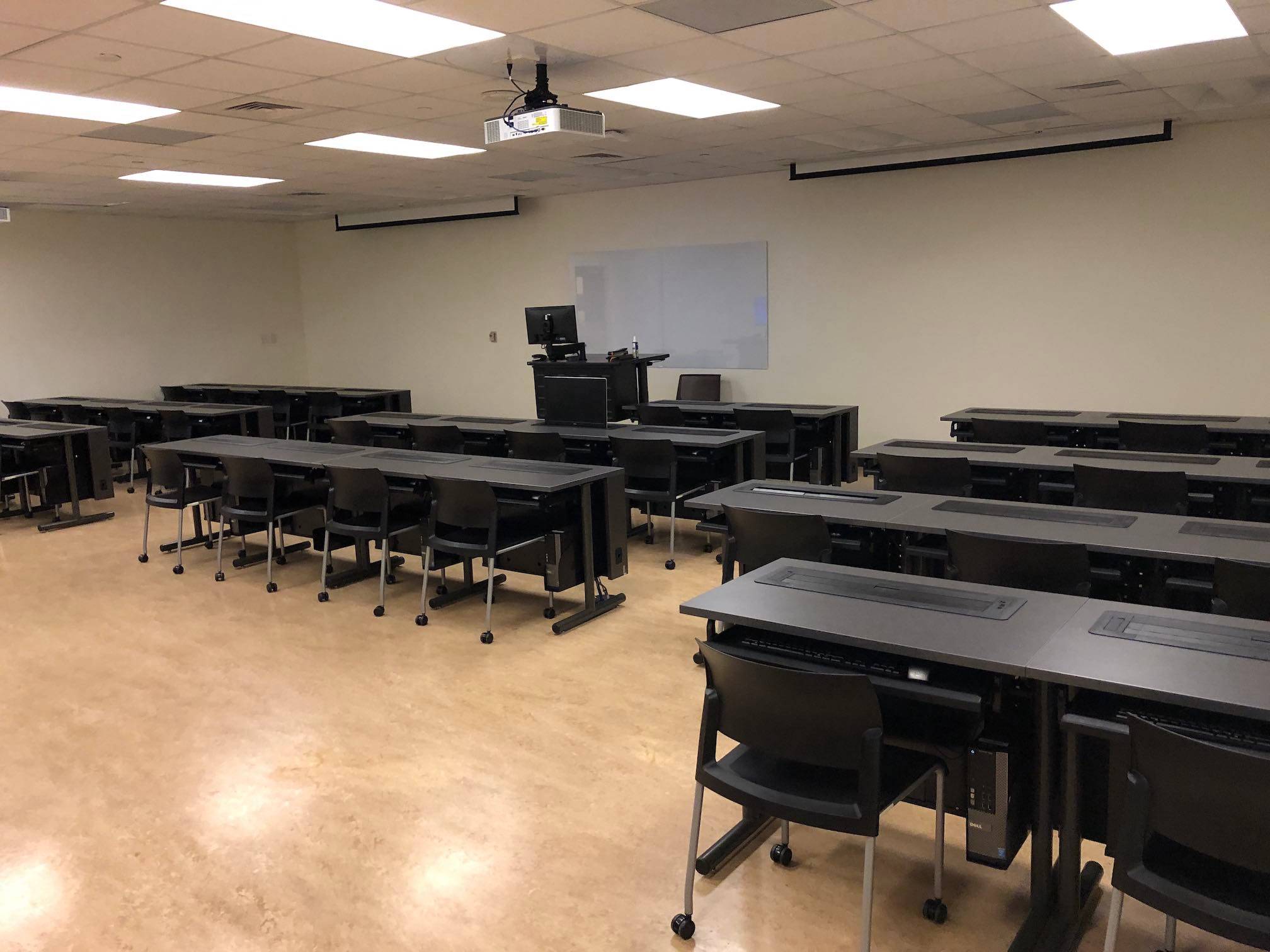The Department of Psychology has research space to support faculty research, as well as graduate students' research with their faculty mentors. These include individual labs as well as a teaching computer lab with 33 individual workstations, a centralized computer lab solely for data collection, a room for survey research, and state-of-the-art observation rooms.
The Department also has laboratories to cater to the needs of academic instruction and the administrative activities required to ensure the smooth operation of a large number of majors.
A list of labs, equipment, and lab websites is included below.

Computer Labs:

The Classroom Computer Lab, located in THH 440, is a large classroom for teaching statistical analysis and research methods using actual software used in psychological research. The lab contains 33 Windows-based workstations with Microsoft Office, SPSS Statistical Software, and a classroom projection system. This lab is only open to scheduled classes.
The Data Entry Lab, located in the THH 225, has seven Windows-based computers available for graduate students and other research assistants to enter and manage data collected from experiments. These machines are equipped with Microsoft Office, SPSS Statistical software, and specialized research software. This room is access controlled by a key card.
The Graduate Assistant Room, located in THH 258, has 12 Windows-based workstations. These machines are solely for use by Psychology graduate students and the room is access-controlled by key card.
Faculty Lab and Research Websites
Neuropsychology & Psychopathology Research
Dr. Amitai Abramovitch
Utilizing cognitive neuropsychology, experimental psychopathology, and meta-analytic research methodologies, our research aims at gaining insight into cognitive functions associated with psychopathological processes, as well as into psychopathological correlates of heightened versus reduced control.
View the Neuropsychology & Psychopathology Research Website
Children's Cognitive and Social Development
Dr. Jenn Clegg
Research examines children’s development as social learners. In my research, I strive to incorporate diverse methodologies from anthropology, educational psychology, and cognitive psychology to examine cultural development from a more nuanced perspective.
View the Children's Cognitive and Social Development website
Memory and Cognition Lab
Dr. Rebecca Deason
The overall goal of our research is to understand how we learn and remember items, how memory is altered or impaired by aging and disease, and how we can use preserved memory processes to improve the daily lives of older adults and patients with Alzheimer’s Disease (AD).
View the Memory and Cognition Lab website
SCCAERAB Lab
Dr. Jessica Perrotte
At SCCAERAB, we explore the mechanisms connecting a network of factors to health risk behaviors (e.g., heavy alcohol use, risky sexual behavior) among young adults. In particular, much of our work focuses on forming conceptual bridges between broad sociocultural processes (e.g., acculturation, gender roles) and health behaviors within a risk-taking framework. By furthering the scientific understanding of the contextual factors related to health risks, we aim to inform culturally tailored prevention and intervention programs that improve the health and wellbeing of populations who are adversely affected by engagement in risky and addictive behaviors.
Social Cognition Across Development (SCAD) Lab
Dr. Kate Warnell
We study how kids and adults think about themselves, other people, and social situations. For more information about what we study, please follow the links at the top of the page. We are excited to be at Texas State and to be working with families in Central Texas!
Cognitive Neuroscience Laboratory
Dr. Carmen Westerberg
Our research primarily concerns how memories evolve over time, how the neural reorganization of knowledge may impact other cognitive processes, and how processes active during sleep contribute to these changes. These questions are investigated using behavioral and electrophysiological methods in healthy adults, patients with sleep disorders, and in aging and Alzheimer’s disease.
View the Cognitive Neuroscience Lab website
IDEA Lab
Dr. Crystal Oberle
Description: The IDEA lab explores how culture and diverse social identities influence behavior, cognition, health, and well-being. These identities may include race, ethnicity, nationality, gender, sexual orientation, (dis)ability, and more. Of particular interest are the lived experiences of underrepresented people, how those experiences relate to inclusion and equity, and the impact of those experiences on mental and physical health.
